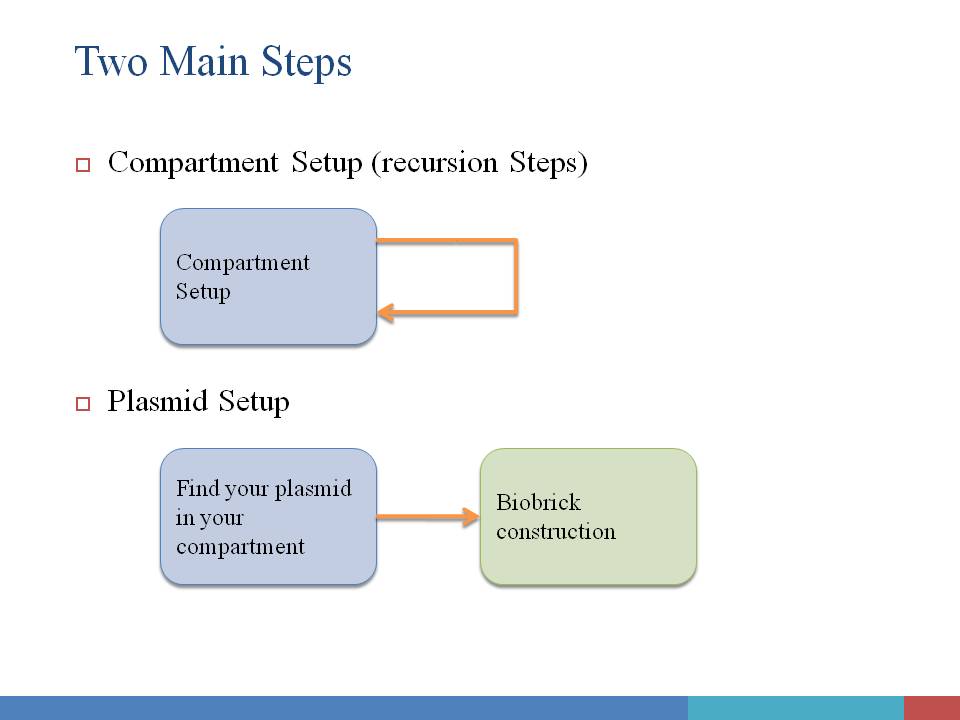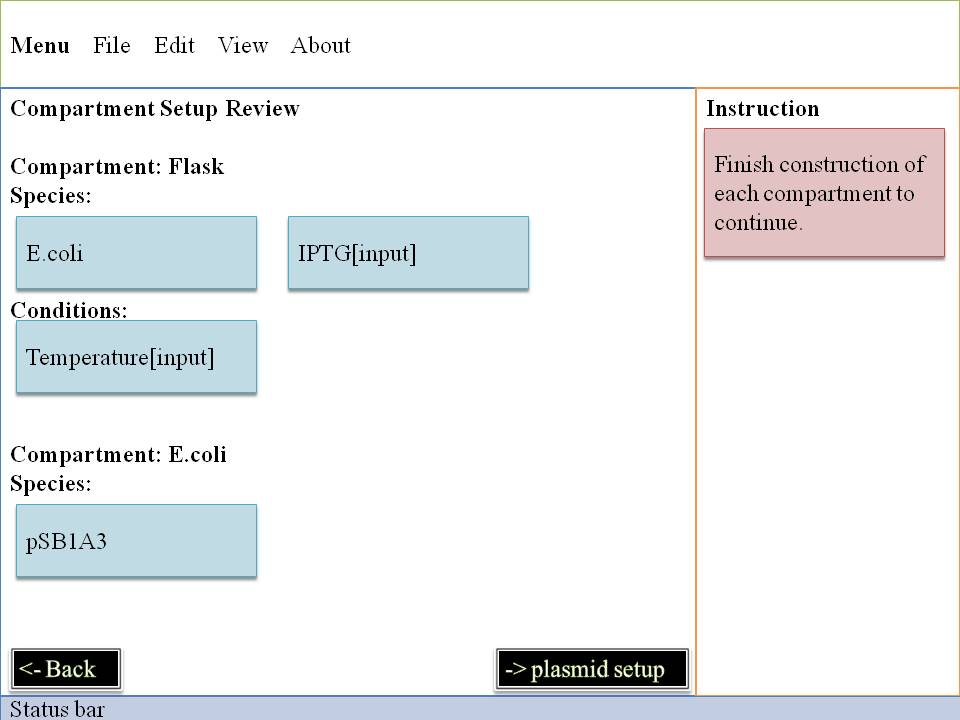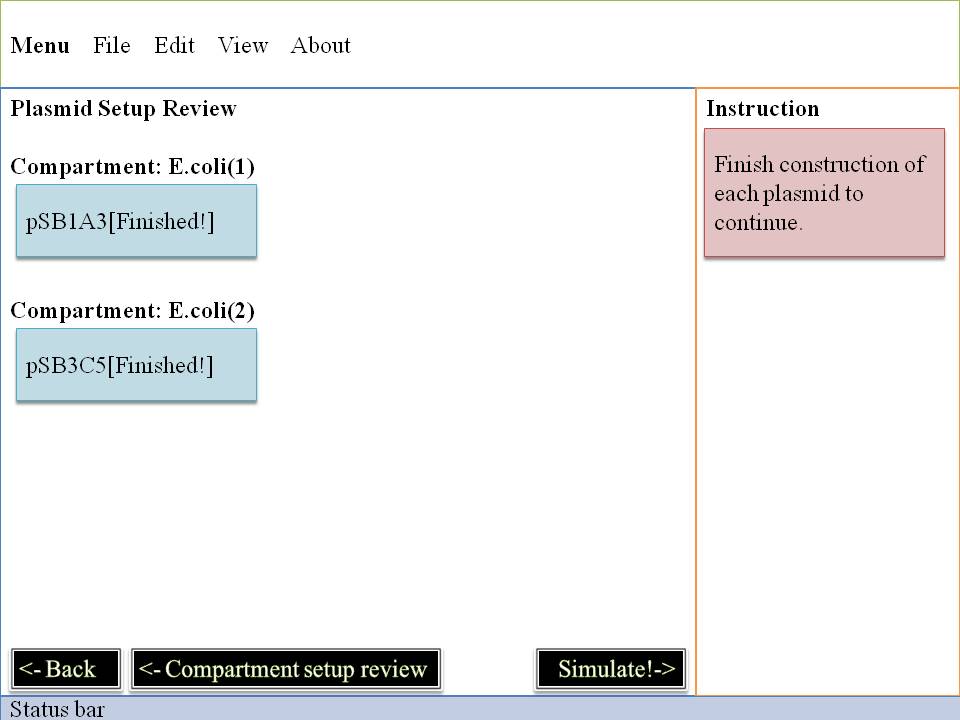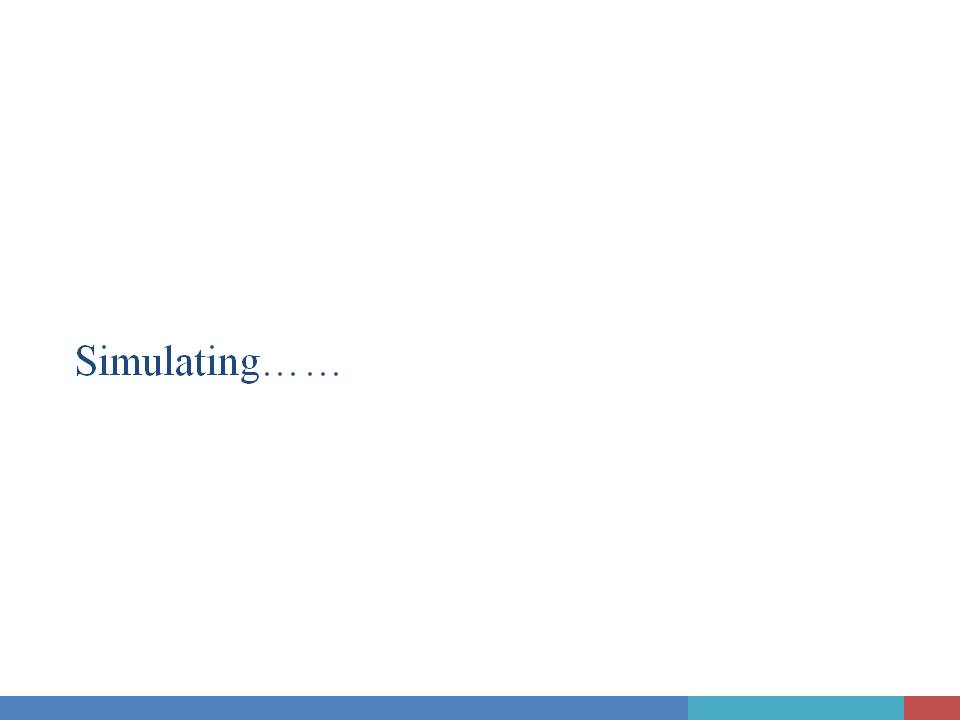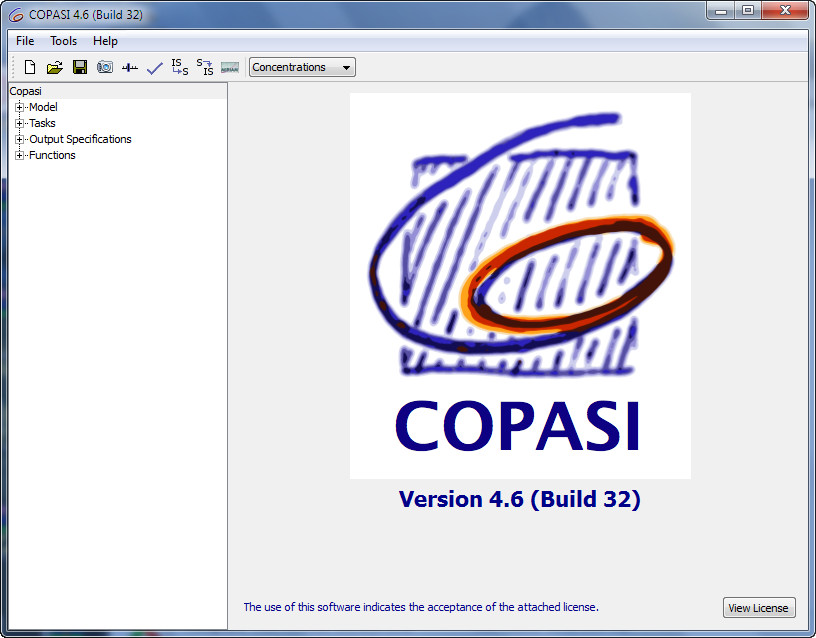Team:USTC Software/User Interface
From 2010.igem.org
(→Output) |
|||
| Line 42: | Line 42: | ||
|[[Image:USTCS_input4.JPG|460px|thumb|right]] | |[[Image:USTCS_input4.JPG|460px|thumb|right]] | ||
<br/> | <br/> | ||
| + | <p> | ||
| + | OK!Now it's the time to give our system some more data , write down your favourite condition , it's good to be god , huh?~ Take it easy , next part is more attractive ! | ||
| + | </p> | ||
|} | |} | ||
Revision as of 17:29, 27 October 2010
Contents |
User-Friendly Design
As the world enters upon an age of human nature destructions, of resource starvation and the ignorance of ecological balance, the world is more and more under the control of human beings, there is less room for the survival of animals, various kinds of microorganism are being killed and regenerated circulatory in laboratory.
However, there exsits a special kind of bacterial, who is too diligent to be willing to be controlled by human, they use their magic power to learn certain skills to being survived successfully. Reviewing their developmental history, their ancestors made great contribution to the world under successive human experiments. They show us the meaning of Biobrick, they grasp the ability to adapt themselves better to the outside world, they know how to realize their value furthest and greatly, they are the E.COLI!
Now let us begin the E.COLI magical mystery tour~~
Input
|
In order to give user a clear and definite goal on input. The whole input process is divided into two main steps: Compartment Construction and Plasmid Construction. In the first step, user only need to focus on the input of environmental condition, compartment, spatial structure of compartments, and the species contained in each compartment. In the second step, only plasmids are editable, and users can click on each of them to assemble biobricks into functional device. Of course, useful tips will be given along with your input process. |
Step#1 Compartment Construction
|
Left:
Right:
|
|
OK!Now it's the time to give our system some more data , write down your favourite condition , it's good to be god , huh?~ Take it easy , next part is more attractive ! |
Step#2 Plasmid Construction
|
|
|
|
|
|
See Your Result!
| Click Simulate button and see what will happen!
Read more about our modeling idea and modeling algorithm! |
Output
| We use the powerful open source simulator for biochemical networks - COPASI, as the output interface of our software. |
 "
"
